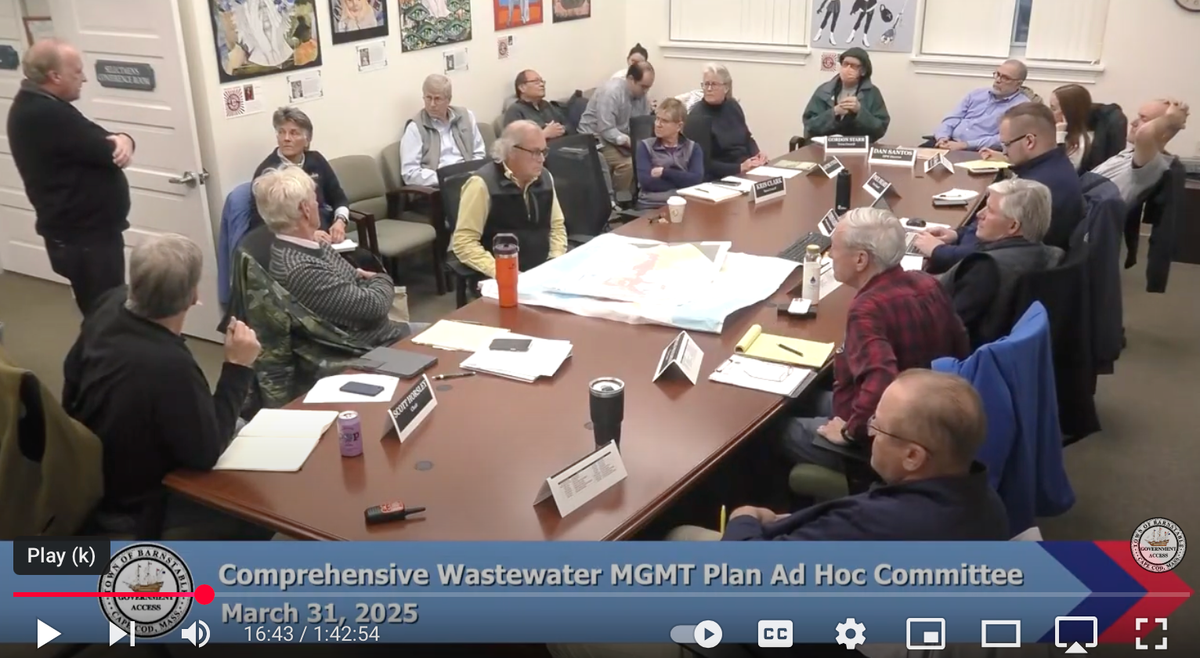Comprehensive Wastewater Management Plan Ad Hoc Committee | March 31, 2025
The meeting focused on developing recommendations for the Comprehensive Wastewater Management Plan (CWMP), specifically addressing the implementation of innovative alternative (IA) septic systems to reduce nitrogen pollution.

AI supported summary below. Corrections welcome.
The meeting focused on developing recommendations for the Comprehensive Wastewater Management Plan (CWMP), specifically addressing the implementation of innovative alternative (IA) septic systems to reduce nitrogen pollution.
Key Points
- Meeting Logistics: The meeting was held on March 31st, 2025, and included roll call, approval of previous meeting minutes, and scheduling of future meetings (May 19th at 1 PM for a field trip to the MA Septic System Test Center, and April 22nd at 6 PM for the next regular meeting).
- IA Septic Systems: A significant portion of the discussion centered on the implementation of IA septic systems, including their cost, effectiveness, and potential regulations. The committee explored various scenarios for mandating IA systems, considering factors like proximity to water bodies, existing septic system failures, and affordability.
- Board of Health Input: Representatives from the Board of Health presented information on current regulations regarding IA systems, including situations where they are currently required (e.g., high-density areas, proximity to wetlands). They also discussed challenges related to enforcement and the cost of IA systems.
- Cost and Affordability: The high cost of IA systems was a recurring concern, with discussions on potential funding mechanisms, cost-sharing options, and the need for financial assistance for low-income homeowners. The committee also considered the potential for using less expensive alternatives like tight tanks and composting toilets in certain situations.
- Scientific Basis for Regulations: The committee emphasized the need for a scientific basis for any new regulations regarding IA systems, particularly concerning setback distances from water bodies. They discussed using groundwater flow models to inform decisions.
- Parallel Tracks: The committee explored the idea of pursuing multiple approaches simultaneously, including sewering, IA systems, and less expensive alternatives, to address nitrogen pollution in a phased manner.
- Public Comment: Public comments included updates on relevant initiatives from the New England Water Works Association, The Nature Conservancy, and ongoing research into nanobubble technology for nitrogen reduction in ponds.
